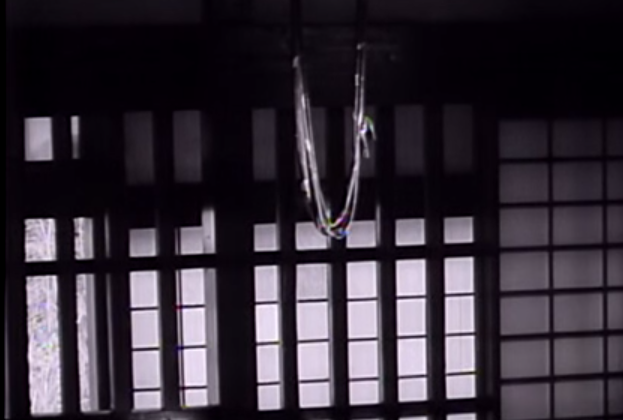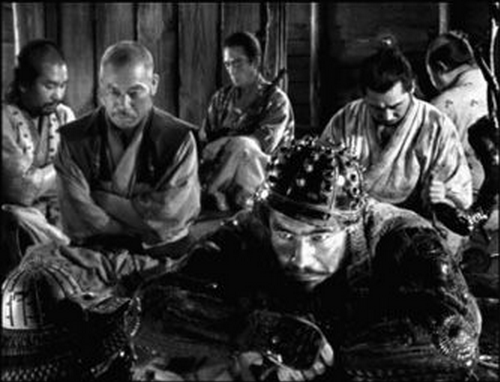Morality
I have been stunned by the suicide of a farmer in broad daylight, infront of thousands of people in a political rally in the heart of India’s capital. The farmer wrote a note in a piece of paper and then threw it to the crowd and hanged himself from the tree. However, the leadership of AAP including Mr Kejriwal, were not “distracted” by the suicide and continued addressing the crowd. Rather than discussing the reason for the suicide, I would like to examine the response towards the death.
This death didn’t impact the politicians in the dias. Such tragic events doesn’t always impact the high and the mighty.
In Kurosawa’s “High and Low”, the hero played by Toshiro Mifune is a senior manager in a shoe factory. He is in disagreement with other partners. He has secretly bought a controlling interest in the shoe factory and had to send 50 million yen in advance and pay an additional 100 million later to buy additional shares to get controlling interest of the company. To get this money he has even mortgaged his house. However, at that he gets a phone call from a kidnapper that his son is kidnapped. He immediately gets tensed and notes down the denominations of notes of the 30 million yen that he has to pay as ransom to pay the kidnapper. Very soon he realises that the kidnapper has mistakenly kidnapped his driver’s son. The driver pleads before him to pay the ransom and release his son. However he retorts back to his driver “do you know what you are asking?” He says that if he pays then he will be back on the streets. His wife is surprised by his change in decision and tells him that just now you were ready to pay for your son and the kidnapper only made the mistake because the driver’s son was wearing his son’s clothes. Here the hero, brilliantly played by Toshiro Mifune, was ready to sacrifice his ambition to save his son. But the moment he realises that his son is safe, he immediately thinks of spending that money to buy the shares of the factory and takeover it rather than give it to the kidnapper. Ofcourse later he pays that ransom and loses out in the battle to control the factory and hence is thrown out.
In corporate world, ruthlessness is a prized possession of the top executives. We never hear morality, ethics and conscience being associated with successful corporate officials. For most of the people ambition is supreme and only becomes secondary infront of their loved ones. What else can justify the behaviour of the AAP leaders when their top three leaders continued to speak one after the other despite a farmer commiting suicide infront of them in their rally? Morality, guilt, conscience are perhaps designed by society to put a leash on unbridled ambition. Politicians, at least most of them, seem to be unaffected and unhindered by morality and conscience.
In this day and age one who plays by the rules and falls is often ridiculed. Today the anti-hero is the hero ie. the one who plays the role of the villain is the hero. Many of our reel life hero’s in India are fighting legal cases. So perhaps the AAP party was more keen to showcase that their rally was a success and nothing could stand between them and the success of their rally. Not even death.
In Akira Kurosawa’s “Seven Samurai”, Kambei who is the leader of the samurai’s, tells Kikuchiyo “one who has never been hunted, would not understand”. I often wonder at that statement. If you have faced death and have survived, will you mellow down? Will you have another perspective of life? Will you realise how ephemeral life is and stop being in this rat race of becoming the wealthiest/most powerful person in the world? Will you then lose your ruthless streak and listen to your conscience?
Akira Kurosawa in his movie ‘Red Beard’ has shown a dying man. The main doctor known as ‘Red Beard’ tells his intern to be alone with the dying man and watch him dying. He says death is solemn. Death, apart from the immediate grief, does it provoke any feelings?
I would love to know if any of you have ever faced death yourself, and/or were with a dying person during his/her last few moments. Did it provoke any different kind of feeling? Please provide your comments below.
- GoPro Hero 12 Black - 6 September,2023
- Leopards: The Last Stand - 2 July,2023
- Drifting in the Waters of Sundarbans - 26 March,2023






I have never faced death but I have seen loved ones die in front of me. Yes, death transforms you, makes you feel helpless and humbled. About your reaction, I have the strongest contempt for all politicians. Not only have they become immune to human reactions but are callous enough to display them in public. Very tragic!
The best write-up I have seen on the Aam Aadmi Party response to the farmer’s suicide. By the way, I have always used a one-word descriptor for the AAP – NAUTANKI!